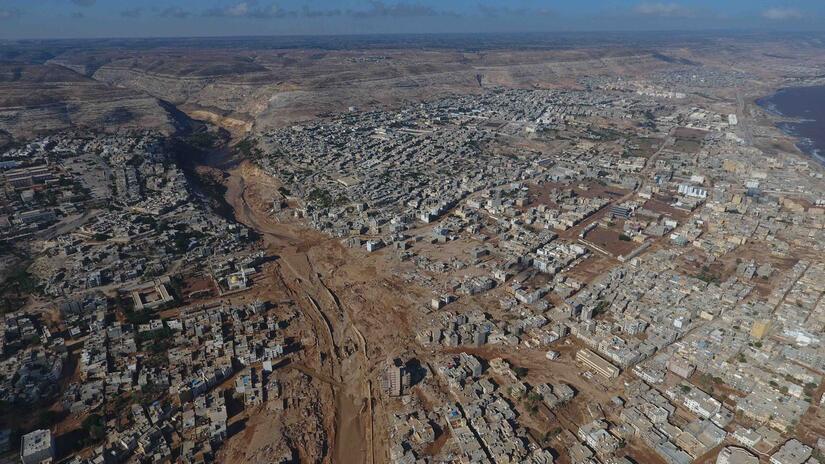Storm Daniel hit north-eastern Libya on Sunday 10 September, bringing strong winds and sudden heavy rainfall, which led to massive flooding, devastation and deaths. Infrastructure was severely damaged, including dams near Derna that burst, causing flooding that swept away entire neighbourhoods. Libyan Red Crescent teams and volunteers were first on the ground, evacuating people and providing first aid and search and rescue.
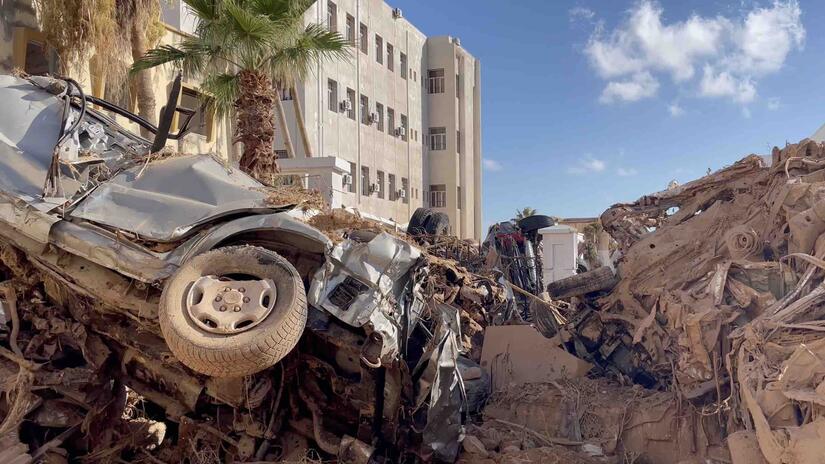
The level of destruction in Derna was immense and the impacts have been long term.
Photo: Libyan Red Crescent
The IFRC quickly allocated resources through its Disaster Response Emergency Fund. The IFRC then launched an emergency appeal to support the Libyan Red Crescent in providing emergency shelter, psychosocial support, healthcare, clean water and food to affected communities. Teams also worked tirelessly to help people reconnect with family members.
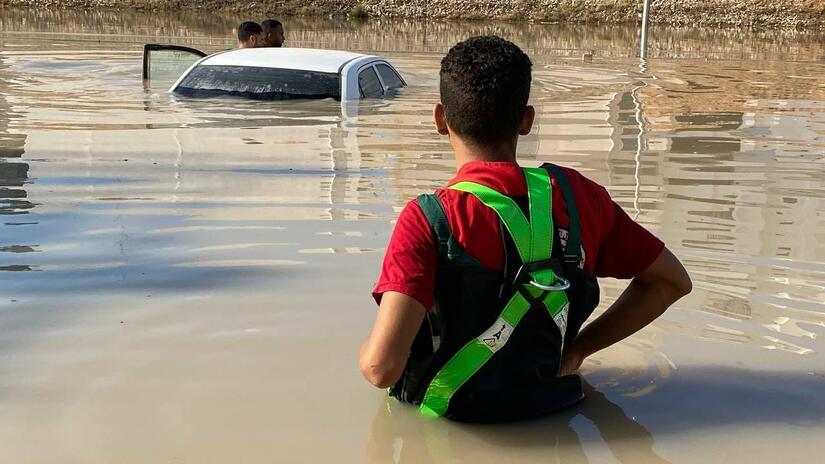
Rescue workers for the Libyan Red Crescent braved deep waters and many dangers as they sought to help survivors.
Photo: Libyan Red Crescent
With the IFRC network backing it up, Libyan Red Crescent workers performed heroic work. But there’s more to be done. The IFRC emergency appeals sought to raise CHF 25 million (CHF 20 million of which is expected to be raised by the IFRC Secretaria) to support the Libyan Red Crescent. So far, just more than CHF 8.3 million has been raised.
And the needs continue as many are still displaced from their homes and the psychological and economic shock lingers.
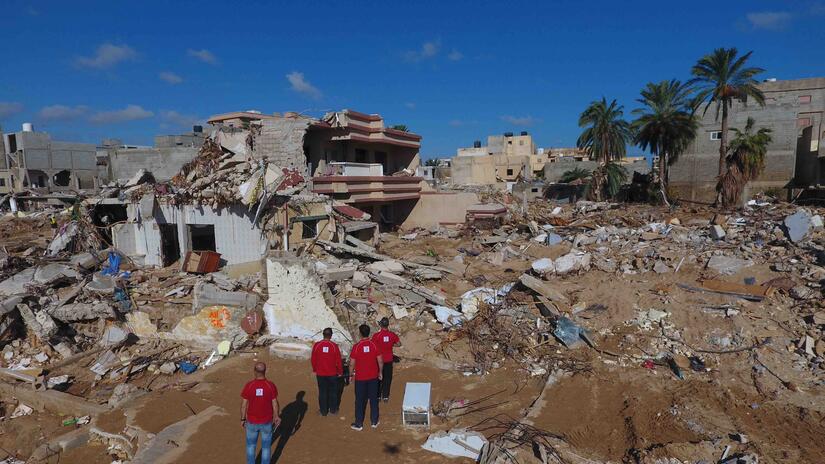
The Libyan Red Crescent response inspired support from around the IFRC network, including teams from the Turkish Red Crescent, pictured here.
Photo: Turkish Red Crescent
The disaster also garnered support from around the IFRC network. To support the response of the Libyan Red Crescent in the aftermath of the devastating floods, the Turkish Red Crescent dispatched cargo planes from Türkiye, carrying search and rescue, emergency medical teams and relief teams along with equipment and humanitarian supplies.
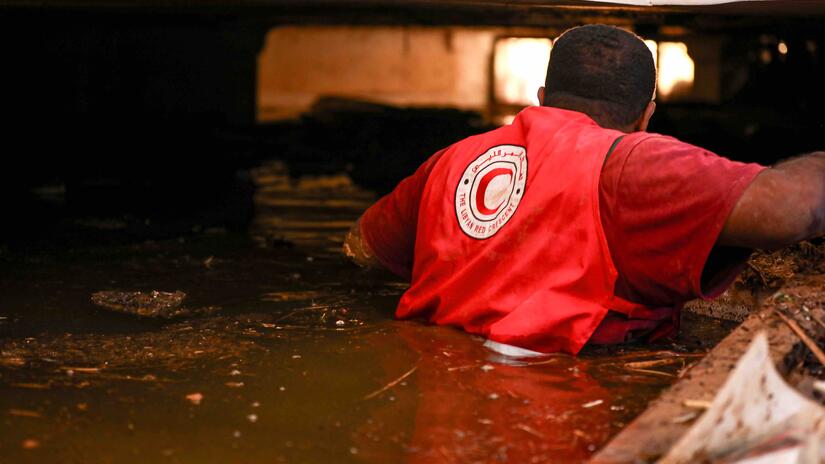
Climate change likely played a role in the disaster, evidenced by the abnormal amount of rain dumped on the area during the storm, according to researchers.
Photo: Libyan Red Crescent
What happened in Derna should be a ‘wake up call for the world’ on the increasing risk of catastrophic floods in a world changed by climate change, according to the IFRC. A rapid analysis by the World Weather Attribution group — a group of scientists supported by the IFRC — analyzed climate data and computer model simulations to compare the climate as it is today, after about 1.2°C of global warming, with the climate of the past.
The scientists found that human caused climate change has made heavy rainfall in north-eastern Libya up to 50 times more likely to occur than it would have been in a world not experiencing human-caused climate change. They also found there was up to 50 percent more intense rain than there would have been in a comparable rainstorm in a pre-climate change world.
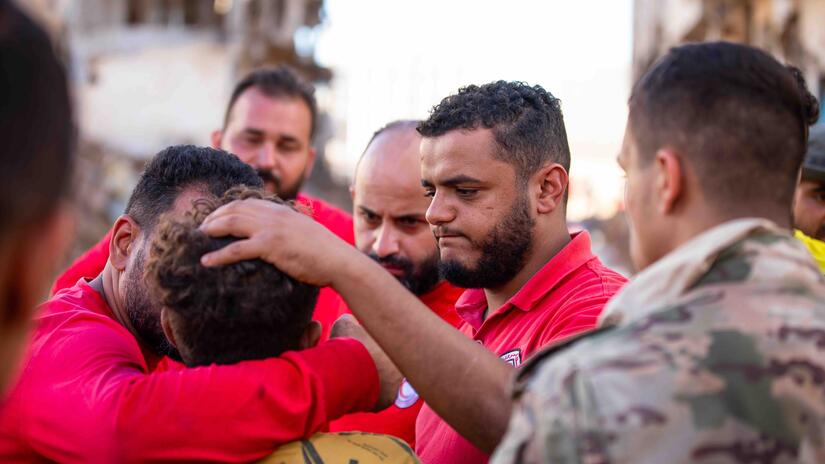
In the worst-hit city of Derna, people’s memories are burdened with painful images and many are in need of psychosocial or mental health support.
Photo: Libyan Red Crescent
Something as ordinary as rainy days and nearby seashores have sadly become a source of fear for those living in eastern Libya, especially for those who experienced first-hand the massive floods that swept-away homes, cars, and loved ones in the blink of an eye.
Signs of experienced trauma, such as children screaming during their sleep or sleepwalking, have become a nightly occurrence in Derna, and even in the nearby city of Benghazi, where most of families fled to following the devastation.
“People are associating rain with death," said Ali Gharor, mental health and psychosocial support officer at the Libyan Red Crescent Society, which has provided a wide range of continuing mental health and psychosocial support to survivors of the flood. “All groups of people in the city need psychological support, including volunteers.”

